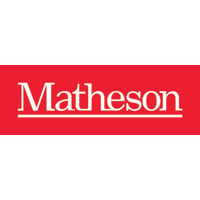
Head of legal | Tines


Sarah Irwin
Head of legal | Tines
What are some of the legal challenges that IT companies face in the development and use of emerging technologies in their products?
Privacy and data protection present the biggest legal challenges given the unprecedented amounts of fines for infringements under the GDPR, and the right of potentially countless individuals to sue a company for failure to protect their data.
International data transfers by EU-based companies have faced scrutiny, particularly transfers to the US since the Privacy Shield was invalidated in 2020 and replaced by standard contractual clauses. Companies therefore need a robust, up-to-date privacy strategy that ensures the highest standards of protection. This can take time and money to implement, which can be challenging for early-stage companies.
Another key legal challenge relates to cybersecurity vulnerabilities. Cyber-attacks are at a record high. New laws are being introduced that will create additional obligations for companies (the UK, for example, recently published the Product Security and Telecommunications and Infrastructure Bill which aims to make consumer connectable products more secure against cyber-attacks). Organisations face the challenge of running their operations across increasingly complex legal and regulatory landscapes.
At Tines, we are passionate about helping companies deal with fast-evolving security challenges in a scalable way. Our no-code automation tools allow anyone to stay ahead of the curve – a key goal for any security team in 2022.
In what ways do you see the in-house legal role evolving in your region over the next few years?
We are at the beginning of an exciting new era of in-house legal practice as we trend away from the old-fashioned model of a siloed cost centre and towards a more progressive one whereby the in-house function serves the company’s legal needs by using a strategic business approach to improve productivity, slash legal spend and create value for the business. This is generating a culture shift as increasingly in-house lawyers dispense with the notion that contracts should be drafted and negotiated “by lawyers, for lawyers” in favour of a more end-user focus— invest in legal tech to remove inefficiencies in legal workflows. The demand for these changes is reflected by the explosion of legal ops and legal tech onto the scene in the past year to support this exciting (r)evolution.
What are the most significant cases or transactions that your legal team has recently been involved in?
We have added some world-class companies to our growing customer base including Kayak, Circle, Canva, MongoDB, OpenTable, Box, databricks, GitLab, and auth0. Partnerships have become a significant component of our business and we are excited to be working with companies such as Lacework and Panther in this way. All these transactions are a result of cross-company collaboration and effort, from initial lead to execution of contracts. Our in-house team supports with legal input at whatever point required, typically during contract negotiation and closings.